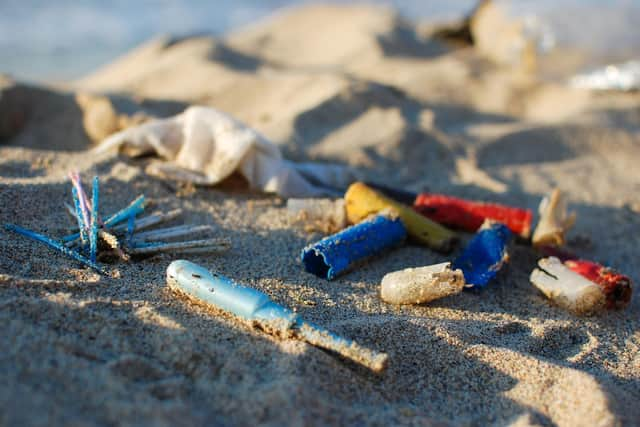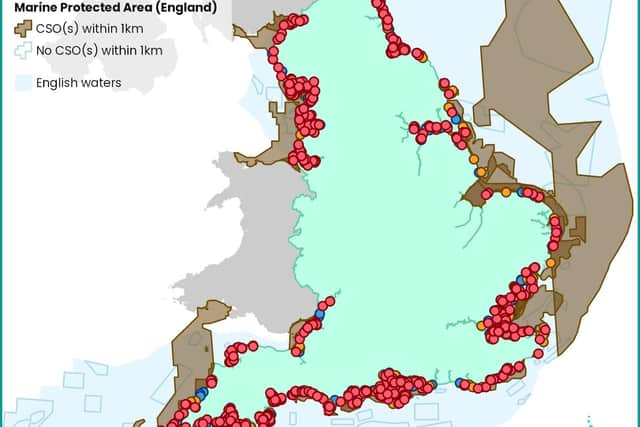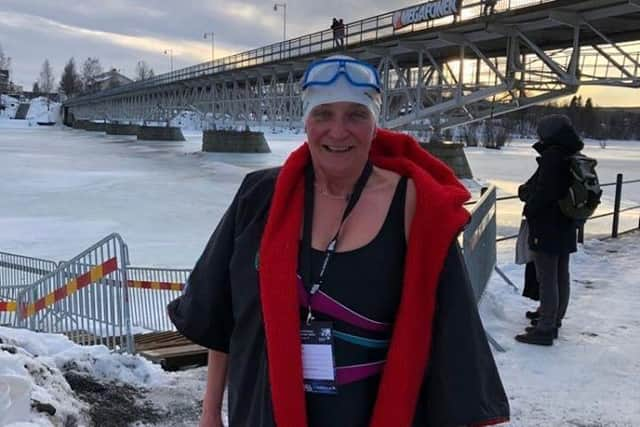Northumberland wild swimmer hits out at 'disgusting' sewage waste pollution as High Court dismiss legal challenge against Government plan
and live on Freeview channel 276
Storm overflows normally happen when the sewage system is at risk of being overwhelmed and water companies release excess water and sewage into rivers and the sea, to prevent water backing up into the streets and people's homes.
In 2022, storm overflows were used 7,382 times within Northumberland's local authority boundaries and the amount of sewage in the ocean and rivers has been a cause for concern.
Advertisement
Hide AdAdvertisement
Hide AdJane Hardy, from Alnwick and a volunteer for British Divers Marine Life Rescue, said: “We're polluting the environment. I can choose when I swim in the sea because I've got the safer seas app, so I can see when the pumping raw sewage is the sea and I can not swim that day, but wildlife has no option.”


"I clean the beaches and after heavy rain it's really horrible because when we’ve had a lot of rain I'm also picking, with litter pickers, literally plastic tampon inserts and it's it's disgusting, it's absolutely disgusting.”
“We keep on building more and more new houses and it's an old system that's trying to cope with that, so it's easier to just pump all the disgusting stuff into the ocean and pay a couple of fines if you get caught or hang on to it and just throw it all out when it's raining.”
The Marine Conservation Society with co-claimants, Richard Haward’s Oysters, and surfer and activist, Hugo Tagholm, sought to compel the UK Government to rewrite its Storm Overflows Discharge Reduction Plan 2022, impose tighter deadlines on water companies and redevelop the plan to effectively apply to coastal waters.
Advertisement
Hide AdAdvertisement
Hide AdSandy Luk, Marine Conservation Society CEO, said: “While we didn’t get the result we wanted, we will not be disheartened. By challenging the UK Government on its failure to address the impact of untreated sewage discharges into our coastal waters and estuaries, we’ve been able to make great progress, pushing for our ocean to be protected.


“As long as raw sewage continues to pour into our seas, affecting wildlife, habitats and all life that depends on it, we will keep doing everything possible to stop it.”
The case was supported and funded by the Good Law Project.
Now, the UK Government’s Department for Environment, Food and Rural Affairs (DEFRA) have launched a public consultation, seeking views on expanding the Plan to cover English coastal and estuarine waters, which wasn’t in the initial plan.
Analysis from the Marine Conservation Society found that there are at least 1,651 storm overflows within 1km of a Marine Protected Area (MPA) in England. Overall, in 2021, sewage poured into protected seas for a total of 263,654 hours.


Advertisement
Hide AdAdvertisement
Hide AdDr Laura Foster, Head of Clean Seas at the Marine Conservation Society: “Our expectations of the UK Government are clear: our seas must be fully protected from sewage pollution, with no exception. The launch of the consultation was a step in the right direction. Now, we wait for the Government’s response to this, and we expect them to act to protect our seas from sewage pollution for the benefit of nature, people, and our planet.
“We need effective legislation, that is properly enforced, to prevent discharges of untreated sewage from treatment works and combined sewer overflows. Our seas cannot continue to pay the price.”